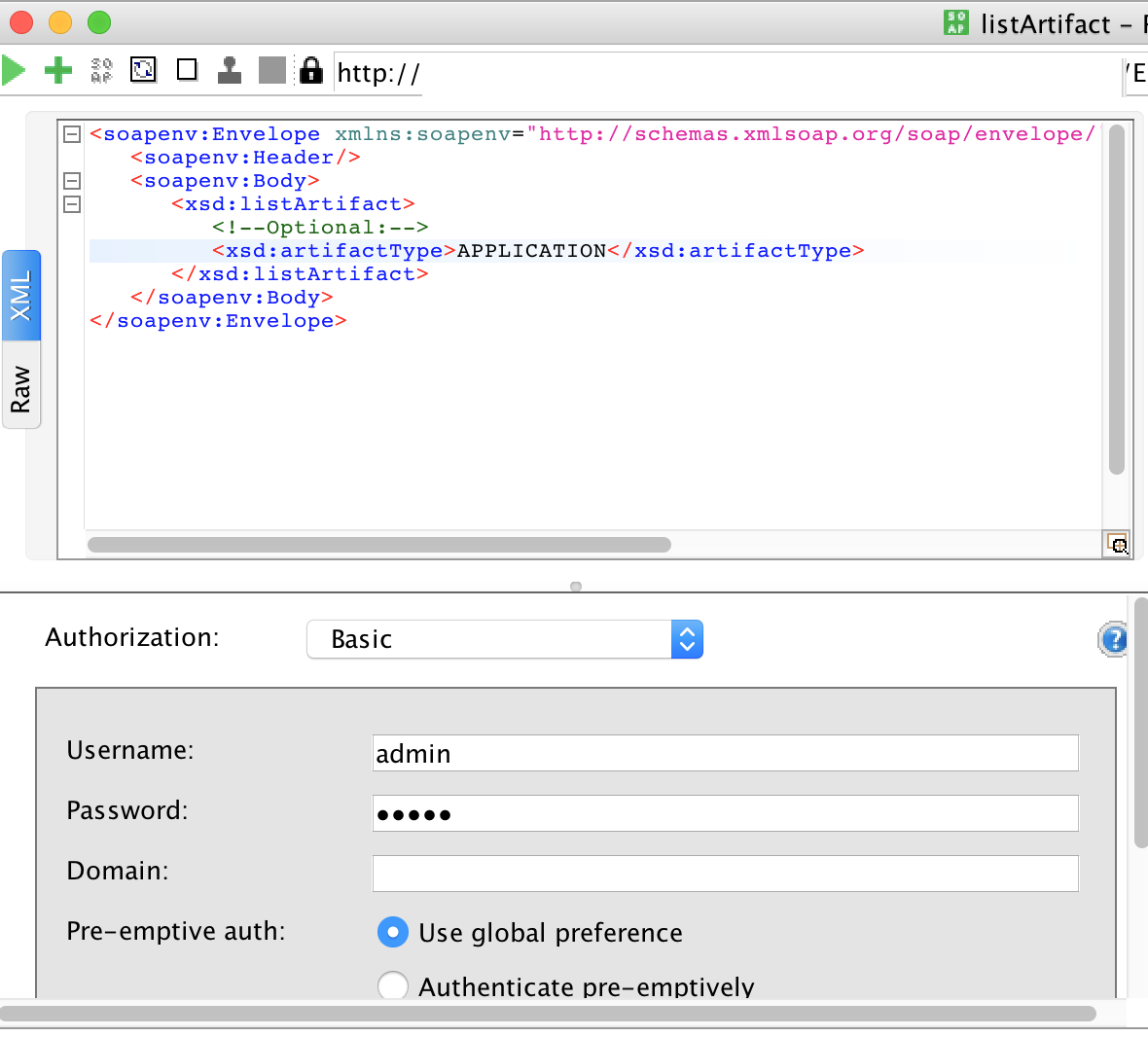Knowing that it uses BASIC authentication helps a great deal. I was able to get this to work in using Python standard libraries.
For posterity's sake, I will provide the community with that code in hopes that helps someone down the line...
because
import http.client
import ssl
import base64
# username and password of account with required permissions
username = "##redacted##"
password = "##redacted##"
# build the base64 encode credentials string used for HTTP Basic Authentication
credentials = base64.b64encode("{username}:{password}".format(username=username, password=password).encode()).decode("ascii")
# Hostname and port where the EspDSeriesService is located
host = "##redacted##"
port = 0000
context = ssl.SSLContext()
# This connection test does NOT verify TLS cert presented by host
# This configuration should *not* be used in production
conn = http.client.HTTPSConnection(host, port=port, context=context)
# SOAP requires Content-type: text/xml
# Credentials are passed in HTTP request headers for BASIC Authentication
http_head = {'Content-type': 'text/xml',
'Authorization': 'Basic %s' % credentials }
# SOAP Message gets passed as HTTP request body
# Example taken from documentation
# https://techdocs.broadcom.com/us/en/ca-enterprise-software/intelligent-automation/ca-workload-automation-de/12-1/utilities-and-soap-web-services-functions/ca-wa-soap-web-services/event-web-services-functions.html
# xmlns:soap modified due to Version mismatch per https://stackoverflow.com/questions/26233636/
http_body = """
<soap:envelope xmlns:soap="http://schemas.xmlsoap.org/soap/envelope/" xmlns:xsd="http://webservice.engine.wa.ca.com/xsd">
<soap:header></soap:header>
<soap:body>
<xsd:listeventschedule>
<!--Optional:-->
<xsd:eventnamefilter>SCHEDMASTER.VERIFY</xsd:eventnamefilter>
<!--Optional:-->
<xsd:from>now</xsd:from>
<!--Optional:-->
<xsd:to>now plus 1 day</xsd:to>
<!--Optional:-->
<xsd:count>10</xsd:count>
</xsd:listeventschedule>
</soap:body>
"""
conn.request('POST', '/axis2/services/EspDSeriesService?wsdl', http_body, http_head)
resp = conn.getresponse()
print(resp.read().decode())
Original Message:
Sent: 11-05-2021 01:31 PM
From: Nitin Pande
Subject: Using SOAP Web Services
Hi,
DE WebService uses BASIC authentication. Here is an example from SoapUI app. Check your application on how to define authentication header. The user/pass you define is the DE user that you would use to login (e.g. in Desktop Client).

HTH,
Nitin Pande
------------------------------
Support
Broadcom
Toronto
Original Message:
Sent: 11-04-2021 04:49 PM
From: Erik Schminke
Subject: Using SOAP Web Services
Are there any resources that exist that might provide more guidance on how to make use of the SOAP Web Services with dSeries? Start to Finish examples don't appear to exist in the large PDF document for the Scheduler. There appear to be about 30-40 pages about what functions are available, but no information about how to authenticate with it. It seems to set out to provide an example for how to do this with a Spreadsheet Application. It diagrams it, but provides no real details.
Am I missing something? Has anyone ever gotten this to work that can point me in the right direction?
Thanks